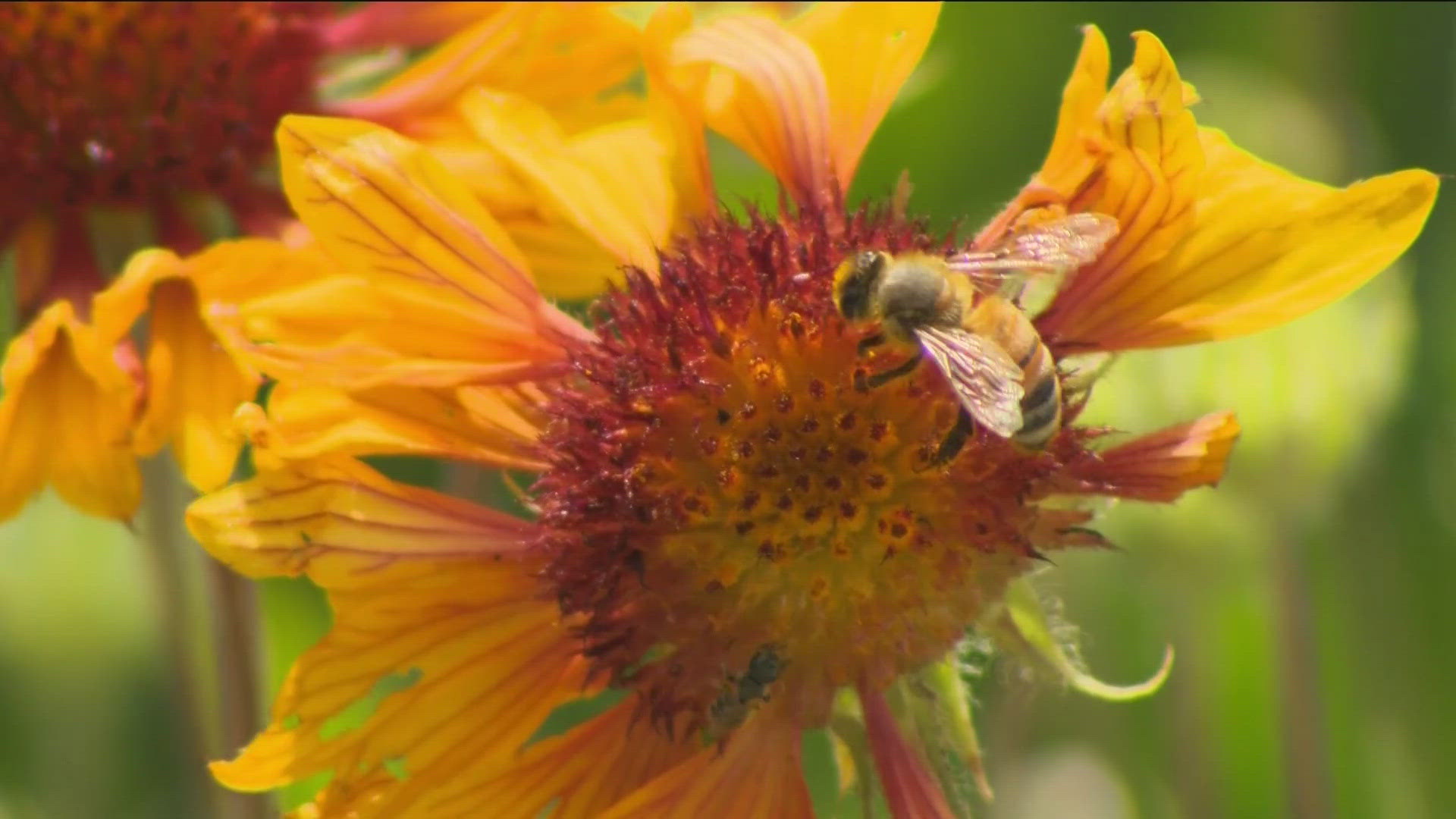BOISE, Idaho — A breezy mid-June day didn’t stop Ron Bitner from finding Idaho bees.
"It's such a windy day, the small ones, it's hard for them to land on things,” he told KTVB June 19, in his Caldwell home garden.
For Bitner, bees were his first love. He has studied bees around the world for over 50 years, including nine years in Australia. He holds a Bachelor’s degree in Biology from the University of Idaho, a Master’s degree in Entomology from Purdue University, and a PhD from Utah State University.
Bitner lives in the Sunny Slope area at his family-owned winery, Bitner Vineyards. At almost 78 years old, he’s advocating to educate Idahoans about bees and how we can save them.
"I'm always talking about bees to people instead of wine," he said.
He said about 15 different types of bees are zipping around near and on his property. But most of them are not pollinating down in the vineyard but up in his yard instead.
"We're celebrating a diversity of bees in the valley right now,” he said. "Here in Idaho, we have about 70 plus (different types of) bees.”
With a grant from the Idaho Department of Agriculture Research, Bitner and a group of others, including students from the College of Idaho, surveyed what bees are in the valley from 2020 to 2023.
They collected the bees and, with help from the USDA Bee Lab in Logan, Utah, photographed and identified the different species. But, the rapid growth in the Treasure Valley poses a threat to bee populations.
"There's a lot of issues with bees with urbanization. We're losing a lot of bees with climate change,” he said. “We're losing bees because there is not enough bloom forming in certain places."
There's one bee Bitner has studied the most - the alfalfa leafcutting bee.
"The ground nesters, they nest in the soil about 10 inches deep, and right now, earth movers and sub-divisions are removing them …by large numbers," he said. They're so small, a lot of the time, it's kind of hard to follow them because they're zipping around."
These types of bees are crucial for growing alfalfa because they pollinate the seeds all day long, increasing the seeds' growth, according to Bitner.
"They're one of the most essential bees here,” he said.
Bitner serves on the board of Pollinator Partnership, an organization out of San Francisco that tries to educate people nationally on how we can take care of bees.
"Idaho is growing so rapidly right now,” Bitner said. “And it's still an ag community. And we're trying to protect ag around here. But you know, we're bumping heads a little bit with the developments, but we realized that's going to happen, but what can we do to keep this diversity of not only bees, the types of bees we have, but insects and it just makes for a healthier state."
There are also things we can do in our own backyards to protect the bees.
"We're all about taking care of nature and taking care of what we have,” Bitner said. “We plant a lot of diversity of pollinator plants around here. Just because that's what most people can do to help with the bees."
When you visit his vineyard, you'll see hints of bees all around, on logos and wine labels. And Bitner is always ready to have a - buzzing conversation.
Join 'The 208' conversation:
- Text us at (208) 321-5614
- E-mail us at the208@ktvb.com
- Join our The 208 Facebook group: https://www.facebook.com/groups/the208KTVB/
- Follow us on Twitter: @the208KTVB or tweet #the208 and #SoIdaho
- Follow us on Instagram: @the208KTVB
- Bookmark our landing page: /the-208
- Still reading this list? We're on YouTube, too:
HERE ARE MORE WAYS TO GET NEWS FROM KTVB:
Download the KTVB News Mobile App
Apple iOS: Click here to download
Google Play: Click here to download
Watch news reports for FREE on YouTube: KTVB YouTube channel
Stream Live for FREE on ROKU: Add the channel from the ROKU store or by searching 'KTVB'.
Stream Live for FREE on FIRE TV: Search ‘KTVB’ and click ‘Get’ to download.

